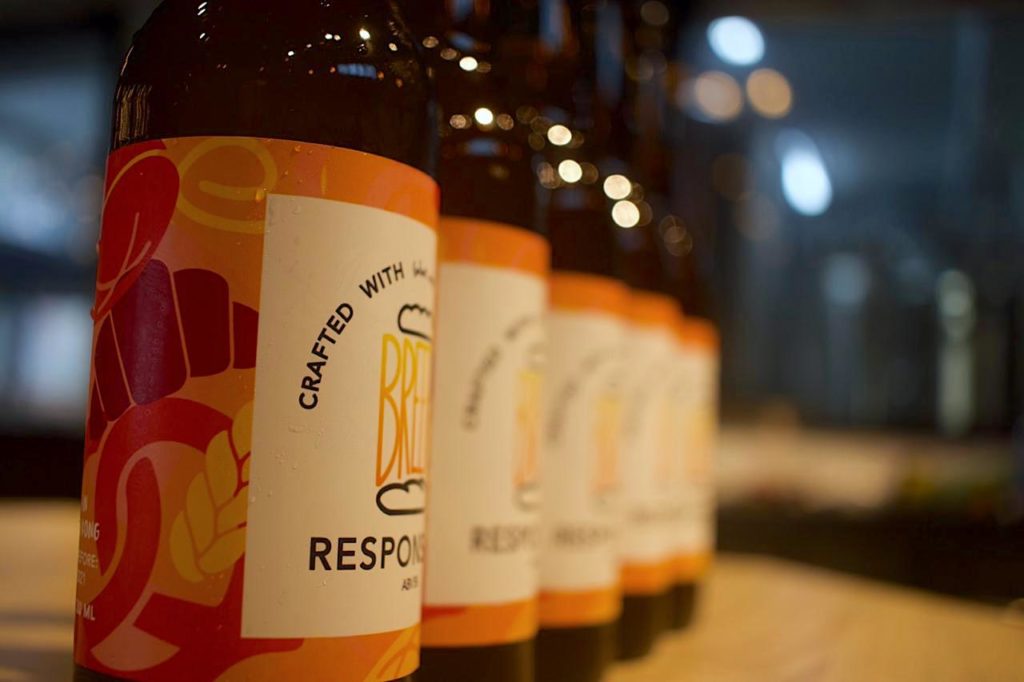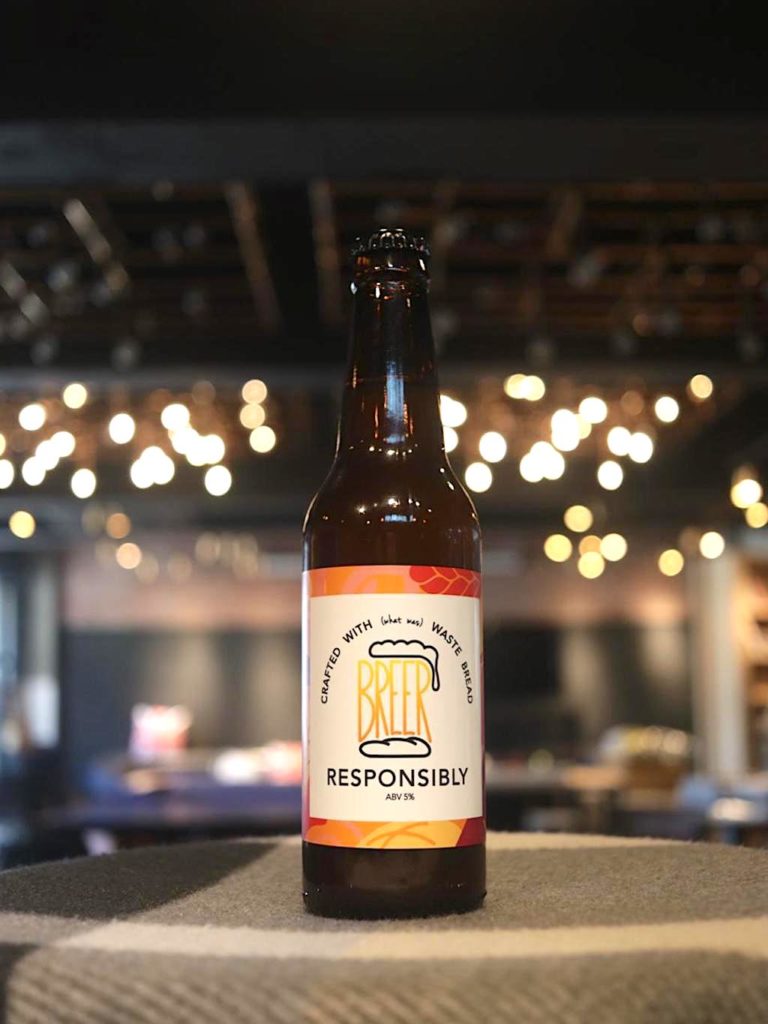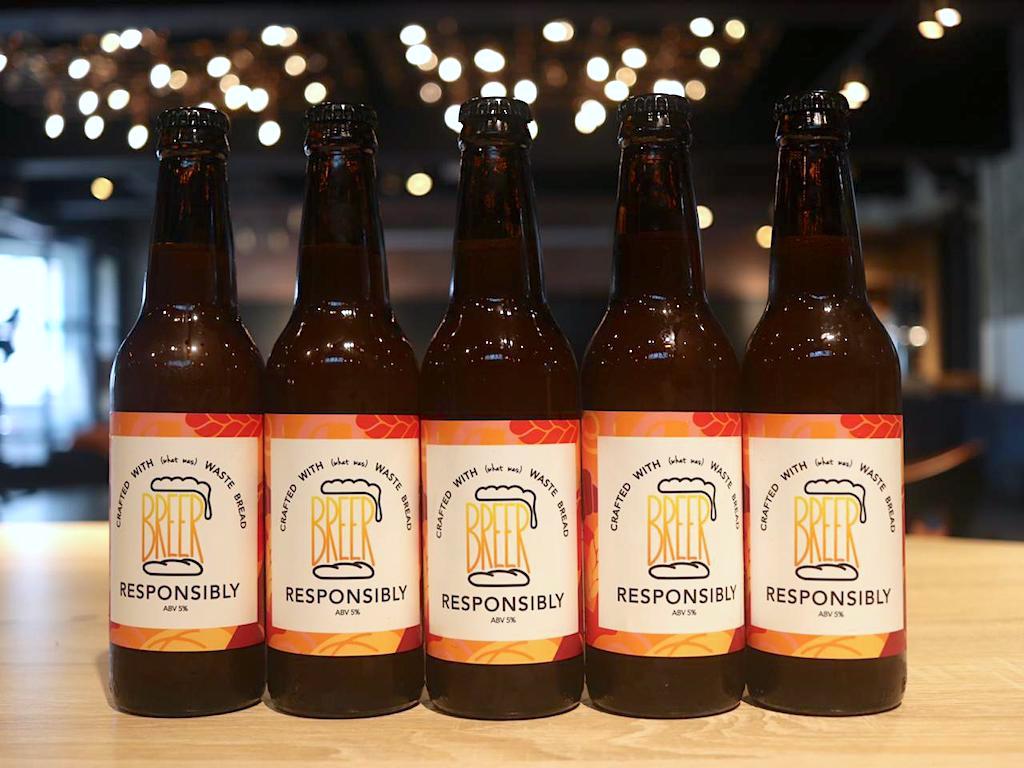4 Mins Read
When four university students in Hong Kong began noticing how many loaves of bread were being thrown away each day in the city, they started to think about how to save food waste and turn it into something new. They came up with Breer, a new brand of local craft beer made from upcycled loaves collected from bakery chains and supermarkets in Hong Kong, which would not only help alleviate food waste, but slash the cost of beer-making too.
“When exams ended last semester, we headed to a bakery and noticed a baker empty all remaining bread loaves into a black rubbish bag, ready to be thrown. It was then that the seed for a food upcycling idea was sown in our minds,” said Anushka Purohit, Naman Tekriwal, Deevansh Gupta and Suyash Mohan, four students at the Hong Kong University of Science and Technology (HKUST) who came together to co-found Breer.
By upcycling food, they want to help become a part of the solution for global food waste, which currently accounts for an astonishing 10% of the world’s carbon emissions – and rich cities like Hong Kong are at the forefront of fuelling the crisis.
Every single day, Hong Kong throws out a whopping 3,600 tonnes of food, equivalent to 250 double-decker buses. When it comes to bread alone, the city’s biggest bakery chains such as A1 and Maxim’s and supermarkets like ParknShop collectively contribute 1,692 tonnes of leftover bread daily.

When exams ended last semester, we headed to a bakery and noticed a baker empty all remaining bread loaves into a black rubbish bag, ready to be thrown.
Breer
And bread is what the four entrepreneurs decided to take on. The Breer team partners with these bakeries and retail chains to collect leftover bread, thanks to the help of trained “Breer-runners” from local high schools, which are then delivered to their storage facility.
These loaves of bread contain many of the ingredients that are used to make beer – grains like wheat, barley and rye – which can be used to replace at least a third of the malted barley and yeast typically used in traditional beer-making. Breer commissions local breweries, who dry the bread, crush it into croutons, seep them in water and mash, drain and boil them before adding in hops and going through a fermentation process to brew their upcycled beer.
Breer’s first two products are lager and pale ale, both of which they are currently piloting, with its initial large-scale 500-litre batch produced in October this year, ahead of its planned official launch next month, sold for an estimated HK$20 per bottle to local bars and stores.
The entire process is also fed into their Breer App, which will provide the entire supply chain, from their “Breer-runners” to collection point and dispatch, with real-time updates to ensure transparency.

In the future, we hope to complete the supply chain full circle.
Breer
The startup says that a perk of upcycling food waste is helping to keep costs low. According to their research, a majority of breweries – 87% to be exact – are currently losing money on production due to rising material costs. By substituting a part of the raw materials with leftover bread, they aren’t just diverting food from Hong Kong’s landfills, of which all three are due to be completely full by the end of this year, but are making the process more cost-efficient for producers.
Within one year, Breer says that they will be able to save HK$75,000 (US$9,675) in brewing costs, on top of the 9.2 tonnes of bread and 3 square kilometres of landfill space saved.
Breer’s brand itself also benefits from having a local “Hong Kong-made” selling point, which particularly appeals to value-led millennials and Gen Zs who are driving the craft beer trend around the world. In their market research, the Breer team found that 83% of Hong Kong’s young people are willing to try bread beer, with 74% citing their motivations to shift to sustainable drinking.
Looking ahead, the startup wants to take its circular model even further.
“In the future, we hope to complete the supply chain full circle,” the co-founders said. “When brewing beer, a lot of the spent grain is left as waste, of which almost 50% can then be reintroduced to baking bread. After the successful launch of Breer, we will consider expanding our line of products”.
Elsewhere in Asia, Singapore-based Crust Group has a similar model, making craft beer from leftover bread from local bakeries. Given that Asia accounts for over 50% of the world’s food waste, solutions like Breer and Crust Group can’t grow fast enough.
All images courtesy of Breer.




